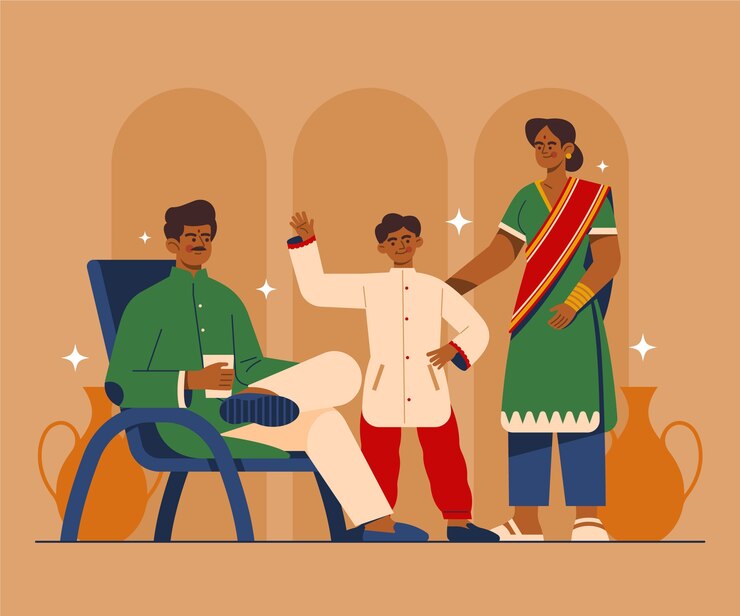
The Indian Constitution is a landmark document that not only delineates the structure and functioning of the government but also ensures the protection and promotion of individual liberties through Fundamental Rights. Equally significant, though less frequently discussed, are the Fundamental Duties. These duties, embedded in the Constitution, form an essential part of the democratic fabric of India. This article explores the Fundamental Duties of human rights in the Indian Constitution, emphasizing their importance in maintaining the balance between individual freedoms and societal responsibilities.
Historical Context and Constitutional Provisions
The Fundamental Duties were incorporated into the Indian Constitution by the 42nd Amendment in 1976, during a period of political turmoil. This amendment introduced Part IVA to the Constitution, which includes Article 51A. The primary aim was to remind citizens that rights come with responsibilities, and to promote a sense of duty towards the nation. The concept of Fundamental Duties was inspired by the Constitution of the erstwhile Soviet Union and was recommended by the Swaran Singh Committee.
Article 51A lists eleven Fundamental Duties for Indian citizens:
- To abide by the Constitution and respect its ideals and institutions, the National Flag, and the National Anthem.
- To cherish and follow the noble ideals that inspired the national struggle for freedom.
- To uphold and protect the sovereignty, unity, and integrity of India.
- To defend the country and render national service when called upon to do so.
- To promote harmony and the spirit of common brotherhood amongst all the people of India, transcending religious, linguistic, and regional or sectional diversities; to renounce practices derogatory to the dignity of women.
- To value and preserve the rich heritage of our composite culture.
- To protect and improve the natural environment including forests, lakes, rivers, and wildlife, and to have compassion for living creatures.
- To develop the scientific temper, humanism, and the spirit of inquiry and reform.
- To safeguard public property and to abjure violence.
- To strive towards excellence in all spheres of individual and collective activity so that the nation constantly rises to higher levels of endeavor and achievement.
- To provide opportunities for education to his child or ward between the ages of six and fourteen years.
These duties, though not legally enforceable, are moral obligations that aim to cultivate a sense of civic responsibility among citizens.
Fundamental Duties of Human Rights: A Symbiotic Relationship
The term Fundamental duties of human rights underscores the intrinsic connection between duties and rights. Fundamental Rights and Fundamental Duties are two sides of the same coin, representing the balance necessary for a just and harmonious society. While Fundamental Rights safeguard individual liberties, Fundamental Duties ensure that these freedoms are exercised responsibly, without infringing on the rights of others or the collective good.
For example, the duty to promote harmony and the spirit of common brotherhood (Article 51A(e)) directly supports the right to equality and non-discrimination. By fostering a sense of unity and mutual respect among diverse communities. And citizens help create an environment where all individuals can exercise their rights freely and fairly. Similarly, the duty to protect the environment (Article 51A(g)) is essential for the realization of the right to a healthy environment, which is crucial for the enjoyment of other human rights, such as the right to health.
Legal Interpretations and Significance
Although the Fundamental Duties are not justiciable, meaning no legal action. It can be taken against an individual for their non-compliance, they hold substantial moral and educative value. The Supreme Court of India has often highlighted their importance in various judgments. In Ranganath Mishra vs. Union of India (2003), the Court stated that Fundamental Duties. And though non-enforceable, should not be considered any less important than Fundamental Rights.
The judiciary has also used the Fundamental Duties as a guiding principle in interpreting laws and constitutional provisions. In the case of AIIMS Students Union vs. AIIMS (2001), the Supreme Court upheld the compulsory service requirement for medical graduates. By referring to the duty to render national service when called upon to do so (Article 51A(d)).
Promoting Awareness and Implementation
For the Fundamental Duties of human rights to be effective, it is essential to promote awareness among citizens. Education plays a pivotal role in this regard. The National Curriculum Framework (NCF) emphasizes the need to educate students about their constitutional obligations. By integrating lessons on Fundamental Duties into school curricula, educational institutions can foster a sense of civic responsibility from a young age.
Public campaigns and civic education programs are also crucial. Initiatives like the “Ek Bharat Shreshtha Bharat” program aim to promote national integration and awareness of constitutional duties. Media, civil society organizations, and community leaders can contribute significantly by organizing workshops, seminars, and awareness drives.
Conclusion
The Fundamental Duties of human rights embedded in the Indian Constitution. And serve as a vital reminder that rights and responsibilities are interconnected. They encourage citizens to exercise their freedoms with a sense of duty towards the nation and fellow citizens. While these duties are not legally enforceable, their moral and educative value. It is immense, fostering a disciplined, respectful, and harmonious society.
In a democratic nation like India, the realization of Fundamental Rights is greatly enhanced by the active fulfillment of Fundamental Duties. By understanding and embracing these duties, citizens contribute to the strengthening of democracy and the promotion of social justice. The symbiotic relationship between rights and duties is essential for the holistic development of individuals. And the nation, ensuring that the fundamental of human rights is upheld in its truest spirit.